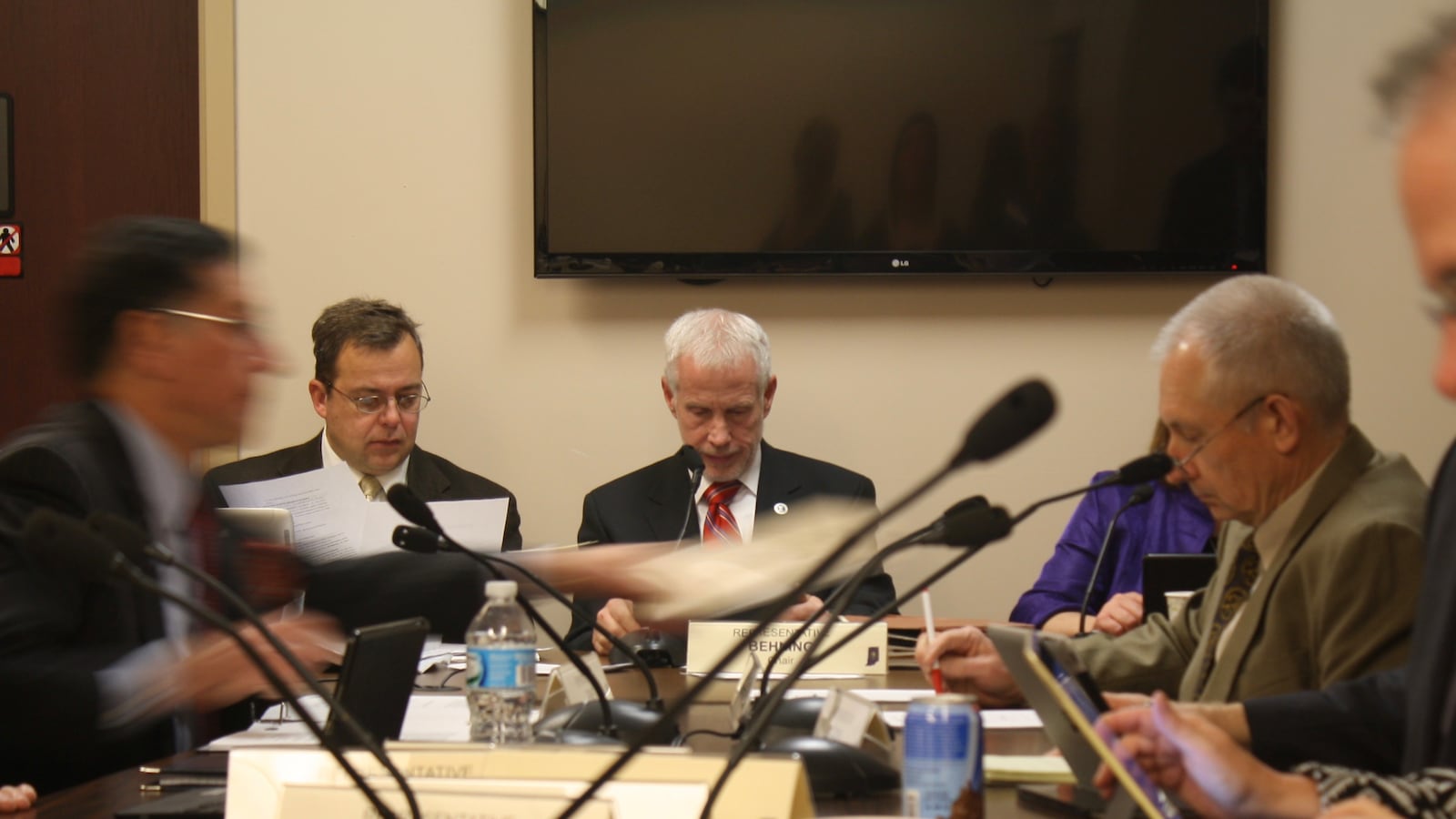A proposal to let superintendents pay some teachers more than others without approval from their unions got new life today.
Just days after the Senate unexpectedly killed a controversial House bill that would have granted superintendents new negotiating powers, the House Education Committee today resurrected the measure by taking up a similar Senate bill.
Senate Bill 10 had been previously unlikely to get a hearing, but when it seemed clear that House Bill 1004 would get knocked down by the Senate last week, House members scrambled to put the Senate’s version on its last-minute docket for today, the last day for hearings. The committee passed it 7-4.
The political maneuvering angered teachers unions and other educators who have vocally opposed both bills and was a snub to Senate Republicans who thought the politically charged issue was better left alone this year.
“The bill usurps local control and crushes relationships,” said Sally Sloan, a lobbyist for the Indiana Federation of Teachers.
The bills were intended to give superintendents new tools to attract qualified teaching candidates in the face of a state-wide teaching shortage in subjects like math, science and special education and in urban and rural districts. But the Senate bill goes even farther than the House version.
Although both bills would let superintendents decide to raise teacher pay above union-approved pay scales, Senate Bill 10 didn’t receive the amendments that made the House version more palatable to some legislators.
The House version limited higher-salary negotiations to superintendents trying to hire teachers for hard-to-fill positions, but the Senate bill would extend that choice to districts aiming to “attract or retain a teacher as needed.” The Senate bill would also let superintendents inform their school boards of those decisions in private meetings, rather than requiring those discussions to be public.
House Democrats who opposed the House version were dismayed about the farther-reaching Senate bill.
“If (decisions are made) in executive session, what kind of transparency is going to be possible under this?” said Rep. Sue Errington, D-Muncie. “It just seems like it’s going to create the kind of atmosphere that gets away from cooperation.”
Rep. Terri Austin, D-Anderson, questioned whether the bill was being rushed through.
“There’s a host of unanswered questions,” she said. “It may be the greatest concept since sliced bread, but the point is we have not thought it through carefully.”
Originally, Committee Chairman Rep. Bob Behning, R-Indianapolis, said he’d make both bills’ teacher pay language identical if the committee passed the Senate bill, but because House Bill 1004, which Behning authored, is dead, any changes from House lawmakers could bring up the possibility that the Senate version dies as well.
“Obviously the fate of (House Bill 1004) changed last week, so I just had a change of opinion on how I should move forward,” Behning said.
Late last week, senators announced the legislation should not move forward.
“The Senate Republican Caucus has decided that we will not proceed with House Bill 1004 or any similar legislation this year,” Senate President David Long, R-Fort Wayne, said in a statement. “We believe that the bill’s intent to deal with the teacher shortage issue in Indiana was misperceived by some as something that would be harmful to teachers. That was not the bill’s intent, nor do I believe that would actually occur. However, it is clear we need to go back to the drawing board.”
Senate Bill 10 and now-dead House Bill 1004 were both strongly opposed by the state’s teachers unions as well as some unaffiliated educators. Critics argued the bill would create tension among teachers and prevent collaborative work that would better serve kids. Teachers who spoke to the panel also had many questions about exactly how the negotiation process would work.
“Bargaining outside of collective bargaining is so detrimental and causes more losses than wins,” Sloan said. “If teachers are coming in and asking for more than has been bargained, then someone is going to lose.”
But the bill’s supporters say superintendents need more flexibility to attract qualified teaching candidates. Melissa Scherle, a teacher at Indianapolis Public Schools Washington Irving School 14, said she’s seen too many good teachers leave because of higher pay offered elsewhere.
“We were not able to compete with (other schools) because we had very little wiggle room with our compensation,” Scherle said.
If House lawmakers approve any amendments to the Senate bill, the Senate would either have to agree to those changes or take the issue to a conference committee for more debate and a final vote from the full Senate. Without amendments, the bill could go straight to the governor. House Bill 1004 narrowly passed the House earlier this month 57-42.
But Behning said some parts of the bill still don’t sit right with him, such as the provision for private meetings. Those issues could be changed in later bills that wouldn’t threaten Senate Bill 10 from advancing through the full House, he said.
“I still have issues with (the private meetings),” Behning said. “But there are ways we can tweak that going forward.”

